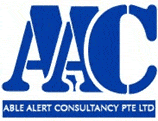04 Mar 2021
Speeches
Mr Abu Bakar, Deputy Chairman, WSH Council and Chairman of WSH Council’s National Work-At-Heights Safety Taskforce,
Mr Darajit Daud, Vice President, Singapore Institution of Safety Officers,
Distinguished tripartite partners,
Friends and colleagues in the WSH fraternity,
Ladies and gentlemen,
1. A very good morning! Welcome and thank you for joining us at the Work at Heights Symposium 2021. My appreciation to the Singapore Contractors Association Limited and Singapore Institution of Safety Officers for co-organising the event, and the Ministry of Manpower for their support.
2020 WAH performance; greater ownership of WSH is needed
2. 2021 has not started off well. We are barely into the third month of the year, and we have had a spate of 11 fatalities all within the month of February alone. This is more than one-third of the total fatalities in the entire year of 2020, and the highest number of fatalities ever recorded in a single month since 2016! This is a wake-up call for us and a sombre reminder that we must never take workplace safety and health (WSH) for granted.
3. Of the 11 fatalities last month, three were due to falls from height. The first worker lost his footing and fell about two metres to the ground from a trailer when delivering steel bars to the occupier’s premise. The second case saw a company director fell 4.7 metres through a floor opening, and the third worker fell overboard a vessel.
4. Such accidents should not have happened. While fall-from-height fatalities have reduced over the years, we must never rest on our laurels but instead, challenge ourselves to take ownership to continuously improve our WSH systems and processes to make workplaces a safe and healthy place for workers.
5. The Work-At-Heights Safety Taskforce has continuously supported the industry by rolling out many programmes and initiatives to help stakeholders build up their work-at-height safety standards and capabilities, as well as strengthen their WSH processes and practices since it was setup in 2009. Such as:
o Work-at-height events organised by the WSH Council and industry associations like SISO and SCAL, to raise awareness, promote good industry practices and showcase innovative solutions while working at heights.
o Developed a suite of work-at-height collaterals like the Work-at-Height Toolkit for Supervisors, safety videos, stickers, pictograms and checklists for the industry’s use; and
o Collaborating with industry stakeholders to push out work-at-height related news and bulletins.
6. This year, one of the key initiatives the Taskforce will be spearheading is to address safety while working on roofs, solar panel installations and working on mobile elevated work platforms. The Taskforce will work very closely with industry associations such as the Roofing Association of Singapore, Sustainable Energy Association of Singapore and International Powered Access Federation.
7. Roof works, solar panel installations and operating mobile elevated work platforms are activities that require a certain level of skill, knowledge, situational awareness and focus to ensure that the work is done correctly and safely. There is also constant exposure to the environment, risk of falling over the edge of buildings, or the risk of being caught between the mobile elevated work platform and other objects.
8. As such, we will be exploring with the respective industry partners to strengthen work-at-height competencies and introduce health and well-being initiatives such as the Total WSH programme to the workforce. I hope to share good outcomes with you at the next Work at Heights Symposium.
Technology can help companies to improve WSH outcomes
9. Due to COVID-19, we have seen how vitally important technology is in enabling businesses to survive. But it is also equally important for companies to leverage and incorporate technology into their systems and processes, so as to strive for new solutions to lower WSH risks. It is also important for workers to constantly upgrade their skills to keep up with the times.
10. To this end, the Taskforce will be collaborating with Institutes of Higher Learning to develop Virtual Reality simulation packages to complement training or gamification to further promote work-at-height safety.
Impact of COVID-19; health is now at the forefront
11. COVID-19 have also changed how we should work; and that is to work healthily. Health has now taken the forefront, with many placing a greater focus and emphasis on being healthy both mentally and physically.
12. The COVID-19 situation looks unlikely to abate in the near future, hence we must continue to ensure our workers’ health and well-being at the workplace in a new normal.
Conclusion
13. Before I conclude, I would like to reiterate for companies to constantly remain vigilant, and do your part in keeping our workers safe and healthy. With the recent spate of workplace fatalities, I strongly urge companies to conduct a Safety Time-Out especially on the use of machinery. Please review all existing WSH provisions and address any potential lapses, so that our workers can go home safe and sound to their families.
14. Today’s Symposium will share important lessons and knowledge on working safely at heights. Take them back to drive improvements in your workplaces.
15. Together we can all prevent the next fall-from-height injury and fatality. Thank you.
